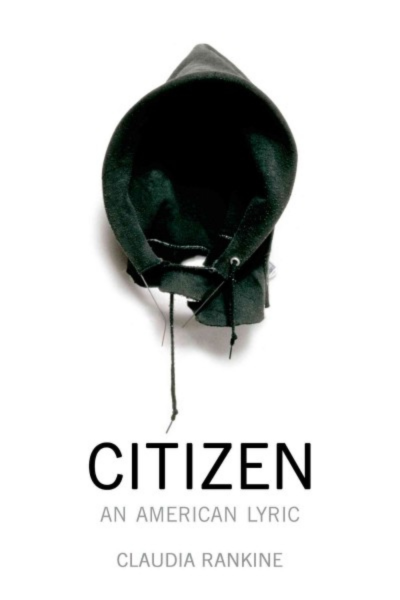Author Claudia Rankine to visit Regis University to discuss her book Citizen: An American Lyric
Acclaimed author Claudia Rankine will visit Regis University on Nov. 7 and 8 to lead the campus community in discussion about her award-winning book Citizen: An American Lyric. In the decade since Rankine released Citizen, the book has given voice to the deep impacts of daily moments of racial aggression that, according to Rankine’s website, “come to bear on a person’s ability to speak, perform, and stay alive.”
Rankine, professor of creative writing at New York University and author of five books of poetry and three plays, will join the Regis community at 7 p.m. on Nov. 7 in the St. John Francis Regis Chapel for a public Good Trouble Conversation as the University’s annual Chester Alter Scholar.
The Good Trouble Conversations series is hosted each semester by the Community for Belonging and Equity in honor of the late Congressman John Lewis, who urged young people to "get in good trouble, necessary trouble and redeem the soul of America."
The Chester Alter Scholar Professor Lectureship, which began in 1988, invites scholars to campus to create a “climate for intellectual excitement.” Previous Chester Alter Scholars have included authors Javier Zamora and Farah Jasmine Griffin.
The book also is this year’s selection for One Book, One Regis, an annual series that intends to foster a shared reading experience that encourages meaningful discussions and connections within the Regis community. All first-year students are provided a copy of the book at the beginning of the academic year so they may engage in conversations throughout the semester. During her visit to Regis, Rankine will meet with students both in small group settings and the Office of First Year Experience’s Fall Friday discussion event. The University also will host Reading Rankine 101 workshops for students, faculty and staff to learn more about reading poetry.
In an interview before the event, Rankine said that when she released Citizen in 2014, her intention was to address moments of day-to-day racism that were felt deeply — but didn’t have a language in culture. Moments like this, she said, “were able to sort of go under the radar, and yet they were having an impact on people's professional, emotional lives, their ability to meet the next moment fully and openly.”
A decade after Citizen was published, Rankine said moments of racism that were previously unspoken now have a language — one that is used commonly in American culture.
“Now, I feel like we have created the language for it — which is not to say it has stopped — but it definitely is enough a part of the culture that it is now in films and songs, in books,” Rankine said. “So, when we see it now, we understand it to be intentional, weaponized … it is now part of the culture's discourse. We do recognize it. We do talk about it.”
Rankine attributed the new cultural awareness to technology. In Citizen, Rankine visits moments of racism experienced by professional tennis player Serena Williams, including questionable calls by umpires and harsh criticisms from the press.
She wrote in Citizen, “Again Serena’s frustrations, her disappointments, exist within a system you understand not to try to understand in any fair-minded way because to do so is to understand the erasure of the self as systemic, as ordinary. For Serena, the daily diminishment is a low flame, a constant drip. Every look, every comment, every bad call blossoms out of history, through her, onto you.”
If social media was as ubiquitous as in those moments, Rankine said, they likely would have been caught.
“I think that the iPhone has made us aware of things that prior to the popularity of social media and the uses of social media, we had to take people's word,” Rankine said. “We had to believe that what they were saying was true, and most of the time it probably was true, but … it was hearsay. And suddenly, with social media and the iPhone, we were seeing for ourselves.”
At Regis, the conversation about Citizen will continue as Rankine prepares to engage with students, faculty, staff and the community.
Good Trouble Conversations are open to the public. Join Rankine as she speaks from 7-8 p.m. on Nov. 7 in the St. John Francis Regis Chapel. Learn more about the Good Trouble Conversation.
Learn more about One Book, One Regis and Citizen: An American Lyric.
